 Surfside, FL – An Orthodox Jewish rabbi initially barred from serving as an Army chaplain because he refused to shave the beard required by his faith was sworn in to the service Friday.
Surfside, FL – An Orthodox Jewish rabbi initially barred from serving as an Army chaplain because he refused to shave the beard required by his faith was sworn in to the service Friday.
First Lt. Menachem Stern of Brooklyn officially became an Army chaplain in a ceremony at The Shul Jewish Community Center in Surfside, Florida.
Stern is a member of the Chabad Lubavitch movement of Judaism, whose rabbis are prohibited from shaving their beards.
It’s the end of a two-year struggle for Stern, who feels being an Army Chaplain was what he’s meant to do. His oath of office was given by another Rabbi, retired Army Colonel and Jewish Chaplain Jacob Goldstein, head of the military outreach for the Aleph Institute, a Florida-based Orthodox Jewish organization.
“I am so happy to finally be a member of the armed forces of the United States,” Stern said to the media after the event. “From the time I knew what a chaplain was, I felt this was my calling to serve those in uniform as an emissary in this way.”
The rabbi saw an advertisement in late 2008 for military chaplains and attended a recruiter’s presentation. After consulting with his wife, he decided to apply in January 2009, making clear in his application he intended to keep his beard.
Stern and other Orthodox Jews don’t shave, believing a passage in the book of Leviticus — “Do not clip your hair at the temples, nor trim the edges of your beard” — specifically outlaws it.
Initially accepted as a chaplain, Army later rescinded its offer, citing its prohibition on beards. A two-year legal battle ensued. New York’s two Senators, Chuck Schumer and Kirsten Gillibrand, as well as Sen. Joseph Lieberman of Connecticut petitioned the Army on his behalf.
Also, a lawyer for the Aleph Institute, filed a federal lawsuit in Washington a year ago. Aleph has a large outreach program that includes the military.
Stern, who turned 30 the night he was commissioned, will now leave the first week in January for Fort Jackson, S.C.
Stern made special note in his acceptance speech after being sworn in that he’s called to minister to the spiritual needs of all soldiers — as all chaplains are called to do.
“The Army is a diverse organization and I’m more than ready to minister to both Jew and non-Jew alike,” he said.
Stern pointed out that part of his faith and beliefs is that all human beings — not just Jews — are called by god to follow the Seven Noahchide Laws. It’s a code of imperatives that, according to the Jewish beliefs were given by God as a rules for the “children of Noah” to live by. And that means, Stern said, all of humankind.
(Source: Army Times)

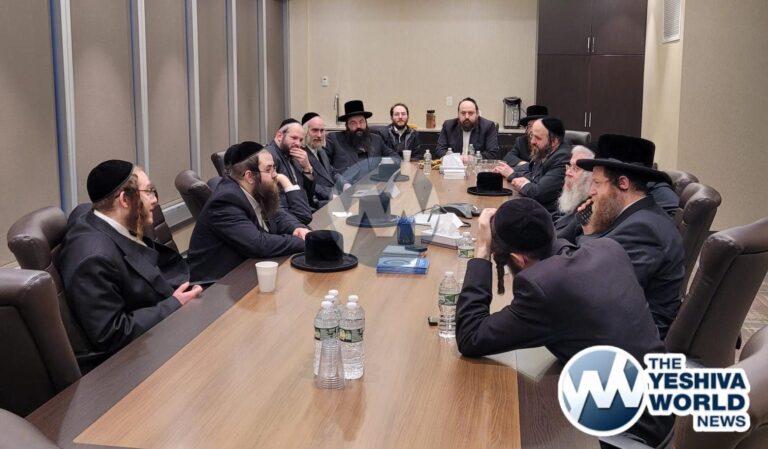



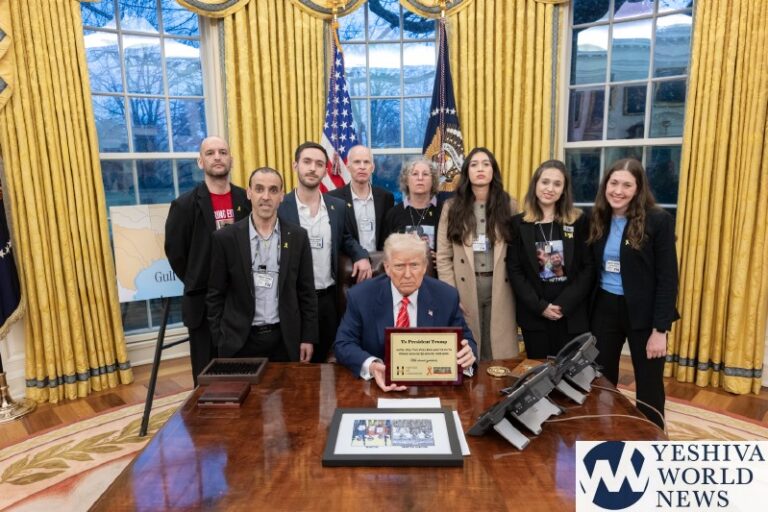
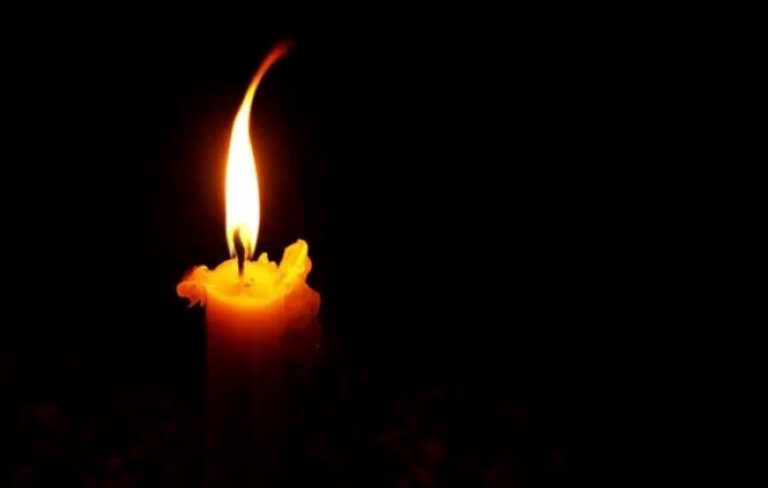

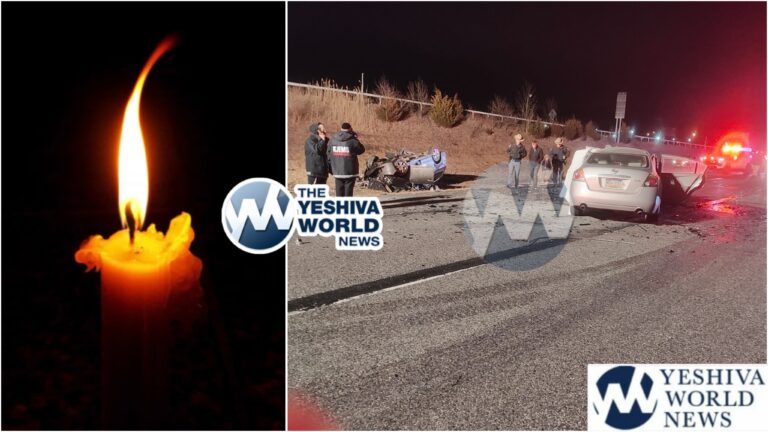

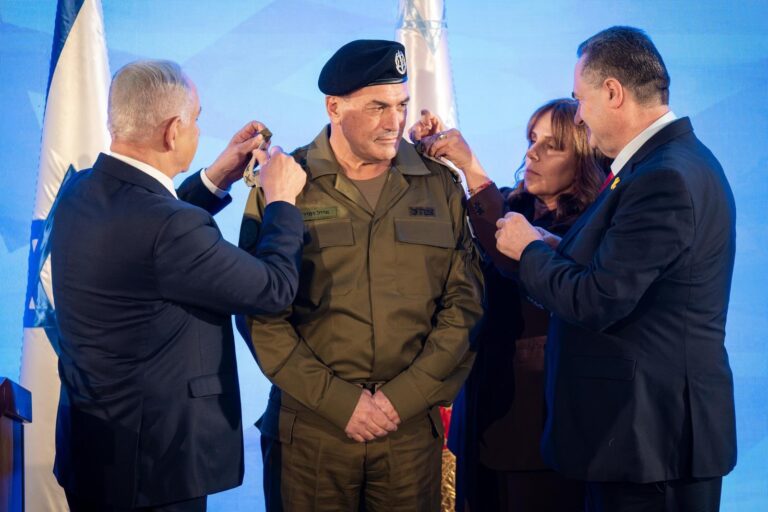
9 Responses
Interesting, but effectively the military is a closed career for anyone who is strictly frum due to non-accomodation of Shabbos in situations that are not life threatening such as training and routine garrison duty with a possible exception for medical positions since the halachos in those area are inherently more flexible than (as examples) riflemen, or engineers, or pilots.
It wasn’t Rabbi Goldstein who gave him the oath, it was Rabbi Dresin. Rabbi Goldstein spoke though.
#1 not always true – though no doubt there are times when it is not easy and a psak or two need to be requested. I personaly know a frum chaplain in the navy. Actualy he became frum while serving as a navy pilot a number of years ago and told his commander he could fly all missions on Shabbos except training flights and his commander accomodated this. He is now a navy chaplain and AFAIK intends to serve in that capacity until his eventual retirement. So its not (always?) a closed shop.
#1 It’s certainly possible for a chaplain to be fully observant; until now with the exception of beards. Now that the Army has folded on that, the door is open for more bearded chaplains.
#3- from what you say, it sounds like he was not Shabbos observant during the whole process of initial training and establishing a material career. Had he gone into the recruiting office (or ROTC application) and said he wouldn’t do any training on Shabbos, he never would have been accepted. I believe that those Jews who hold by Shabbos who serve in combat positions took the position that training for combat is acceptable as being analagous to combat itself, or relied on heterim for Jews in the Russian army where disobedience of orders resulted in something a lot worse than being sent home as unsuitable for military experience, or perhaps on some heterim from World War II based on the theory of combat being imminent (I heard one from the UK to allow training in the summer of 1940 when the Brits expected an imminent invasion).
The significance of this is that the military in the United States is the leading source of vocational education for those without a college degree, and the military through its ROTC and “GI bill-type” programs is the leading source of merit-based non-athletic scholarships for college, so that the inability of a Shomer Shabbos kid to enter the military has serious economic ramifications.
akuperma-
I’m sorry (or glad!) to say that that’s not true, and I’m living proof. I’m a senior in Air Force ROTC and I have never had to be mechallel Shabbos during my training. During our four-week Field Training I certainly did things I never would do otherwise (such as wearing a uniform, marching, sitting in a classroom, etc.), but I never had to be mechallel Shabbos. Before I went down to Field Training I received a written assurance that my religious needs would be accommodated, and when something came up they would literally ask me, “Cadet Chaimss, are you allowed to do this on the Sabbath?” and if I said, “No, Sir/Ma’am” then I didn’t do it. Period. They even provided me with grape juice to make Kiddush and Havdalah while I was there.
Granted I had to work hard to explain everything (I was working with them over a year before I went) but the bottom line is that if someone’s willing to work at it, it’s possible, at least in the Air Force ROTC program. (I’m not becoming a pilot, so I don’t know how pilot training would work.)
#6 – I am assuming you are following your family’s or your own posek. I would be skeptical however, of doing my weekday job (and remember you are paid to be in ROTC) on Shabbos (even if it didn’t include marching, attending a secular class, wearing a uniform – something directly addressed even in the time of the mishna where someone wanted to wear his uniform on Shabbos and was told not to). However you should follow your rav, though I’ld be skeptical if most Orthodox rabbanim in America would agree with him.
Just bear in mind that this right to have a beard will also have to apply to Muslims.
Akuperma-
Without getting into specifics (for obvious reasons) my Rav is actually the author of one of the definitive works on Hilchos Shabbos that can be found on Yeshivishe bookshelves. To be fair he told me that if I had come to him immediately he would have advised me not to, but once I spoke with my Rebbi and got his Hashkofic permission and what I needed now was halachic, yes, it’s doable. I’m not saying everyone should do it, but it’s doable if done properly. I also spoke with a Gadol about it.